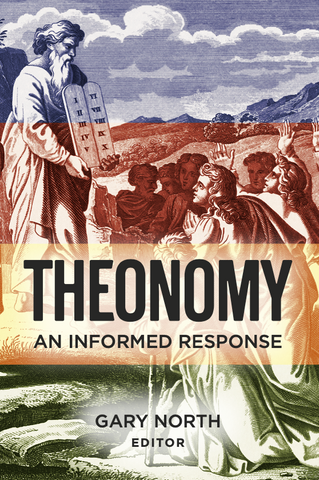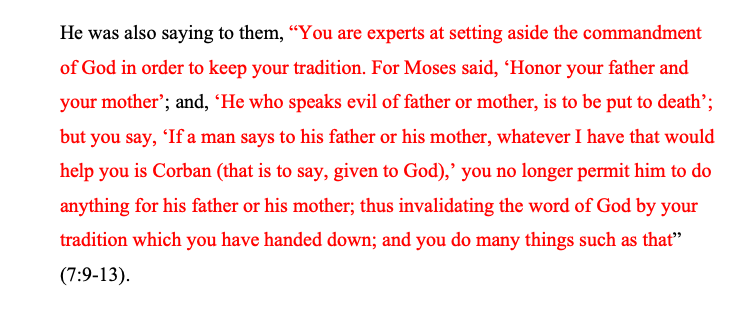Christianity Today reported, “Tony Campolo, a progressive Christian leader who courted controversy challenging evangelicals to see caring for the poor as an integral part of proclaiming the gospel, died on Tuesday. He was 89.” All Christians should be advocates for “the least of these,” although I would not choose the word “caring.” It strikes me as a bit paternalistic. Without a proper understanding of the State’s God-ordained purpose and limited governing jurisdiction citizens can be trapped into believing the State should promote policies beyond its legitimate role and authority. Herbert Schlossberg makes an important contribution to the topic.
Looking to the state for sustenance is a cultic act [an act of worship]; we rightly learn to expect food from parents, and when we regard the state as the source of physical provision we render to it the obeisance of idolatry. The crowds who had fed on the multiplied loaves and fishes were ready to receive Christ as their ruler, not because of who he was but because of the provision. John Howard Yoder has rightly interpreted that scene: “The distribution of bread moved the crowd to acclaim Jesus as the new Moses, the provider, the Welfare King whom they had been waiting for.”
The paternal state not only feeds its children, but nurtures, educates, comforts, and disciplines them, providing all they need for their security. This appears to be a mildly insulting way to treat adults, but it is really a great crime because it transforms the state from being a gift of God, given to protect us against violence, into an idol. It supplies us with all blessings, and we look to it for all our needs. Once we sink to that level, as [C.S.] Lewis says, there is no point in telling state officials to mind their own business. “Our whole lives are their business” [God in the Dock, p. 134]. The paternalism of the state is that of the bad parent who wants his children dependent on him forever. That is an evil impulse. The good parent prepares his children for independence, trains them to make responsible decisions, knows that he harms them by not helping them to break loose. The paternal state thrives on dependency. When the dependents free themselves, it loses power. It is, therefore, parasitic on the very persons whom it turns into parasites. Thus, the state and its dependents march symbiotically to destruction.
When the provision of paternal security replaces the provision of justice as the function of the state, the state stops providing justice. The ersatz [artificial and inferior substitute] parent ceases executing judgment against those who violate the law, and the nation begins losing benefits of justice. Those who are concerned about the chaos into which the criminal justice system has fallen should consider what the state’s function has become. Because the state can only be a bad imitation of a father, as a dancing bear act is of a ballerina, the protection of this Leviathan of a father turns out to be a bear hug.”[1]
Campolo, Jim Wallis, and Ron Sider pushed a socialistic solution to service the poor wrapped in biblical fragments ripped from their contexts. There are ways to serve the poor, but government intervention and wealth distribution is not the biblical way.
In the Foreword to Tony Campolo’s book Red Letter Christians, Jim Wallis tells a story about a secular Jewish country-music songwriter and disk jockey who told him that a new social movement was being birthed as a result of Wallis’ God’s Politics and other “social-conscience” books. Here’s how Wallis tells it:
“I love your stuff and have been following your book tour.” Then he told me he believed we were starting a new movement, but he noticed we hadn’t come up with a name for it yet. “I’ve got an idea for you,” he said. “I think you should call yourselves ‘The Red Letter Christians.’ You know those Bibles that highlight the words of Jesus in red letters? I love the red-letter stuff. The rest I could do without.”
For the record, I’m Italian (DeMare), and my father went by Tony, but I didn’t get excited when I heard this story. Can you imagine a young Jewish man coming up to Jesus and saying, “You know, Jesus, if you would just drop some of your outrageous claims and your moral indictments, I might just follow you. The rest I could do without.” We don’t get to pick and choose what parts of the Bible we are to believe and act on. There were no red letters when the individual books of the Bible were written.
Several years ago, during the height of the influence of the Moral Majority, I was asked to speak to a class of very bright students at Emory University. During a time for questions, one student said she believed in following the morals of Jesus. She was expressing the basics of Red Letter Christianity before it was given a name. She mentioned the woman caught in adultery and how Jesus offered a new perspective on the law. I noted that while Jesus was critical of the Pharisees, he did not change the law regarding adultery. Jesus told her, “from now on sin no more” (John 8:11). Jesus upheld the law; it was her accusers who had violated the law. If she had been caught in “the very act” (8:4), where was the man?

Theonomy: An Informed Response
Christendom is a civilization—the kingdom of God in history—that is governed in every area, every nook and cranny, by God: a society whose lawfully anointed rulers govern in terms of God’s revealed law. In this view, God is not in retirement or on vacation; He is a King who has delegated to His officers the authority to exercise command. There are three covenantal institutions: family, church, and state. To deny that God’s covenant law applies to civil government in New Testament times is necessarily to abandon the ideal of Christendom.
Buy NowAfter this brief exchange, I took her to Mark’s Gospel. “If you want to be a real follower of Jesus,” I said to her, “you must deal with what Jesus said to the Pharisees in Mark 7.”

How do Red Letter Christians like Campolo and Wallis deal with the above red letters of Jesus? Wallis writes, “Red Letter Christians are those who dare to take Jesus seriously; those who believe that if He said it, He meant it; and if He meant it, then we must live it” (12). Next time you encounter Red Letter Christians, ask them what they think about what Jesus said in Mark 7:9-13.
If anyone claims to be a Red Letter Christian and does not deal with these verses, then he or she is a selective Red Letter Christian. But if we can be selective about what red letters we are going to use to identify our social agenda, then the whole Red Letter Christian premise falls apart. It’s all or nothing. Of course, the principle of only considering the words of Jesus as authoritative is very problematic for Protestants who claim to be Evangelical when one of the main tenets of Evangelicalism is Sola Scriptura and not Partial Scriptura and certainly not Partial Red-Letter Scriptura. The last time I checked, 2 Timothy 3:16-17 is still in the Bible, which means the black letters also count, including those from the Original Testament, as the late actor Ron Silver described the “Old Testament.”
Since we can’t dismiss what Jesus says in Mark 7, what does He mean by quoting Leviticus 20:9? (Notice that Jesus is applying the passage to adults and not little children who sass their parents.) The Pharisees had gotten around God’s law as it relates to caring for aging parents by creating a series of man-made laws that they rationalized absolved them of certain personal responsibilities that would cost them money. This verse strikes at the heart of the social agenda of Red Letter Christianity. Campolo declares “that there are more than 2,000 verses of Scripture that call us to express love and justice for those who are poor and oppressed” (24). What Campolo needs to find in these 2,000 verses is one verse that gives authority to civil government to confiscate and redistribute wealth. Campolo takes verses that are directed at individuals and turns them on their head and gives them a political twist. Here’s a representative example:
Most important, when we reflect on all Jesus had to say about caring for the poor and oppressed, committing ourselves to His red-letter message just might drive us to see what we can do politically to help those he called, “the least of these” (see Matt. 25:31-46) [22].
On the day of judgment . . . [God] will ask whether or not we fed the hungry, clothed the naked, received and cared for aliens, and brought deliverance to captive peoples (see Matt. 25:31-46) [24].
Campolo sees a political solution in these verses when Jesus addressed what individuals have or have not done. A post to an article I wrote some years ago had this to say about the role civil government has a right to play in the area of social welfare:
There are lots of things that civil government is allowed to do that I, as a private citizen am not allowed to do like execute criminals, have my own private army, print my own money, etc. You need to take off your blinders of ideological dogmatism and think through the logical implications of what your [sic] saying. By the way, as I posted on another thread my Scriptural basis for supporting Welfare, Foodstamps, Social Security, etc. is Matthew 25:31-46.
Yes, there are some things civil government is permitted to do that private citizens are not permitted to do. Executing criminals and raising an army for the defense of the nation are two of them. Both the Bible and the Constitution are specific about these. Printing money is not one of them. Printing money, even by civil governments, is theft unless it is backed up by gold and silver as the Bible (Isa. 1:22) and the Constitution require (Art. 1, sec. 10). To base government programs like welfare, food stamps, and social security on Matthew 25:31-46 is without foundation. The division in Matthew 25 is between sheep and goats, that is, individuals in nations. Nations don’t visit people in prison. Private citizens do. Civil governments put people in prison. Private citizens do not. Gary North wrote, “I never got around to writing my critique of Campolo. Too bad. I had the title: Campolo: Compassion or Compulsion?” When the government does something, it’s out of compulsion in the name of compassion.

Productive Christians
Socialism has a perennial appeal, and Christians seem to be particularly susceptible to its allure. The modern evangelical resurgence of interest in social justice, critical race theory, gender equity, and woke idealism are clear evidence of this. But, for all its aspirations for justice, equality, and fairness, the rhetoric of socialism is typically marked only by high sounding moralisms stuffed with cliché, guilt, pity, bluster, and resentment. What is worse is that history demonstrates that this rhetoric has had disastrous results whenever it has been translated into economic or political policy. Socialism has proven itself to be the sort of ideology that could produce a shortage of salt water in the Pacific.
Buy NowCivil governments are the biggest hindrance in helping the poor, and it’s not because they don’t tax enough and redistribute wealth. High taxes and control of the money supply (inflation/deflation) enable civil governments to control people and their property. A ten percent tax is a sign of tyranny (1 Sam. 8:15), and yet Red Letter Christians believe in higher taxes on the rich to help the poor. It was a taxing policy by Rome that forced Mary and Joseph to leave their stable home environment, Joseph’s job, and spend money they probably did not have to register for a government taxing program (Luke 2:1-7). Wealth redistribution policies, with all their good intentions, have the effect of hurting the poor and making them dependent on civil government. Campolo advocated what Jesus condemns the Pharisees for in Mark 7: nullifying the Word of God for the sake of a political tradition that is neither biblical nor effective.
Wallis states that Red Letter Christians “affirm the authority of the whole Bible, not just the explicit sayings of Jesus, often highlighted in red” (11). This is good to know, but I wonder how much of the rest of the Bible is actually applied. Paul tells those in Thessalonica, “if anyone is not willing to work, then he is not to eat, either” (2 Thess. 3:10). This hardly sounds compassionate given Red Letter standards, but it’s just as authoritative as what Jesus says in Matthew 25:31-46.
There are many Christians who believe the policies advocated by Red Letter Christians are contrary to the Bible and hurtful to the people they claim they want to help. I believe that many of the policies that Red Letter Christians propose make it harder for the poor to escape paternalistic dependency.
[1] Schlossberg, Idols for Destruction (Nashville: Thomas Nelson, 1983), 183‑184.

